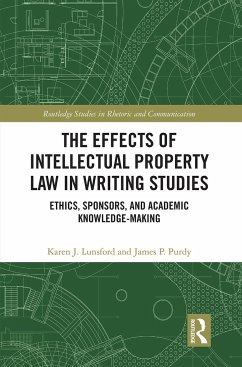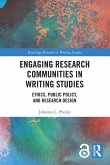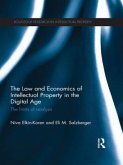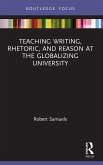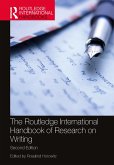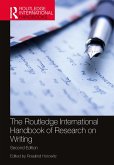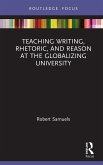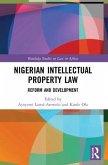This book documents the intellectual property experiences of writing studies scholars and challenges naturalized ways of responding to intellectual property concerns.
Analyzing results of a nationwide survey and semi-structured interviews to examine ways decisions about intellectual property (IP) during academic knowledge-making are mediated by histories of enculturation, ethical lenses, and IP sponsors, the book:
Identifies and illustrates a range of ethical stances that academics might adopt in regard to IP and the range of human, institutional, and technological sponsors that can mediate IP decisions;
Provides evidence that IP affects all of the processes of academic knowledge-making, not just the final product;
Offers heuristic questions that academics can and should ask throughout their teaching, research, and editing to make proactive IP decisions.
The book is an essential read for academics working in writing studies and the humanities as well as those interested in IP. This text could also be used in graduate student training in writing studies and related disciplines.
Analyzing results of a nationwide survey and semi-structured interviews to examine ways decisions about intellectual property (IP) during academic knowledge-making are mediated by histories of enculturation, ethical lenses, and IP sponsors, the book:
Identifies and illustrates a range of ethical stances that academics might adopt in regard to IP and the range of human, institutional, and technological sponsors that can mediate IP decisions;
Provides evidence that IP affects all of the processes of academic knowledge-making, not just the final product;
Offers heuristic questions that academics can and should ask throughout their teaching, research, and editing to make proactive IP decisions.
The book is an essential read for academics working in writing studies and the humanities as well as those interested in IP. This text could also be used in graduate student training in writing studies and related disciplines.
Nominated for the 2021 Computers and Composition Distinguished Book Award
Nominated for the 2021 CCCC Advancement of Knowledge Award
The Effects of Intellectual Property Law in Writing Studies has been selected by BookAuthority as:
"In their smartly conceived and carefully crafted book, The Effects of Intellectual Property Law in Writing Studies: Ethics, Sponsors, and Academic Knowledge-Making, James P. Purdy and Karen J. Lunsford have written what might be the definitive work on intellectual property in the field of writing studies. The authors present a retrospective of the role of IP in academia, and build on this rich history with new IP stories representing the lived experiences of a broad sampling of writing studies professionals from across the discipline. Original insights anchored in adept storytelling make this book a compelling read for anyone seeking deep understanding of IP with the goal of making more informed, mindful decisions across their various roles as writing teacher-scholars."
Jessica Reyman, Northern Illinois University, USA
Nominated for the 2021 CCCC Advancement of Knowledge Award
The Effects of Intellectual Property Law in Writing Studies has been selected by BookAuthority as:
- #2 in the "10 Best New Property Law eBooks To Read In 2020": https://bookauthority.org/books/new-property-law-ebooks
- #23 in the "29 Best Property Law Books of All Time": https://bookauthority.org/books/best-property-law-books
"In their smartly conceived and carefully crafted book, The Effects of Intellectual Property Law in Writing Studies: Ethics, Sponsors, and Academic Knowledge-Making, James P. Purdy and Karen J. Lunsford have written what might be the definitive work on intellectual property in the field of writing studies. The authors present a retrospective of the role of IP in academia, and build on this rich history with new IP stories representing the lived experiences of a broad sampling of writing studies professionals from across the discipline. Original insights anchored in adept storytelling make this book a compelling read for anyone seeking deep understanding of IP with the goal of making more informed, mindful decisions across their various roles as writing teacher-scholars."
Jessica Reyman, Northern Illinois University, USA

